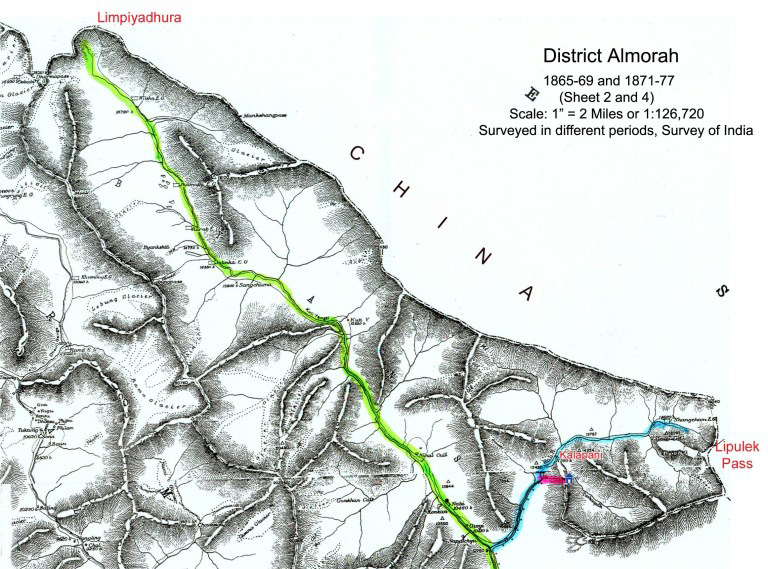After the low of the 2015-16 blockade, Nepal-India ties have again hit rock bottom following the latest disputes over some 372 sq km of land on the border abutting the Kali River. India built a road through the Lipulekh Pass without consulting Nepal. It has also been stationing its army at Kalapani since the early 1950s, purportedly to monitor Chinese movements in Tibet. The latest disputes came to a head when the Indian army chief pooh-poohed Nepal’s claim over Kalapani and Lipulekh, saying that they fall entirely within India, and accused Nepal of raising the issue at China’s behest.
Yet most Nepalis, and their government, are as angry with China as they are with India. They think China should not have allowed India to unilaterally build the road on what China considers a tri-junction between Nepal, India and China. Even worse, did the road have Chinese blessing, they suspect? After Nepal published a new national map incorporating all the disputed territories, China said it hoped both Nepal and India would stop all unilateral activities. It added the dispute over the Kalapani region in particular is entirely up to Nepal and India to settle.
Says Lin Minwang, Professor at Institute of International Studies at Fudan University, who closely follows China’s South Asia policy, “India has territorial issues with all its neighboring countries, and has always insisted on a tough position on territorial disputes, which is not conducive to a stable and peaceful environment.” Instead of solving its outstanding issues with Nepal, he added, India is trying to deflect the blame by accusing China of instigating the protests in Nepal.
The bargain India and China struck in 2015 while deciding to open trading via Lipulekh is still shrouded in secrecy. There is a suspicion in Nepal that since India offers China huge markets at its doorstep, Beijing will silently support India’s bid to link the two regional giants, including through passes like Lipulekh. China will have to do a lot to dispel this doubt in the days ahead.
Nepal-India EPG member Surya Nath Upadhyay thinks as Nepal has in the past supported China in difficult times, Nepal can expect reciprocal support. “We should not hesitate to seek active support of China to resolve the Lipulekh dispute. Without pressure from China, India will not agree to its resolution.”
But as the instigator of the current dispute and as the party that has been reluctant to settle Kalapani for many decades, the onus lies on India to create a conducive climate for Nepal-India talks. Ultimately, a workable solution will have to come through dialogue; there is no other way out. Meanwhile, we hope high-ranking officials in both Nepal and India, and their influential voices in the media and the society, refrain from making incendiary remarks to further complicate the situation. Here is a chance for India to prove its Nepal ties are indeed special.











